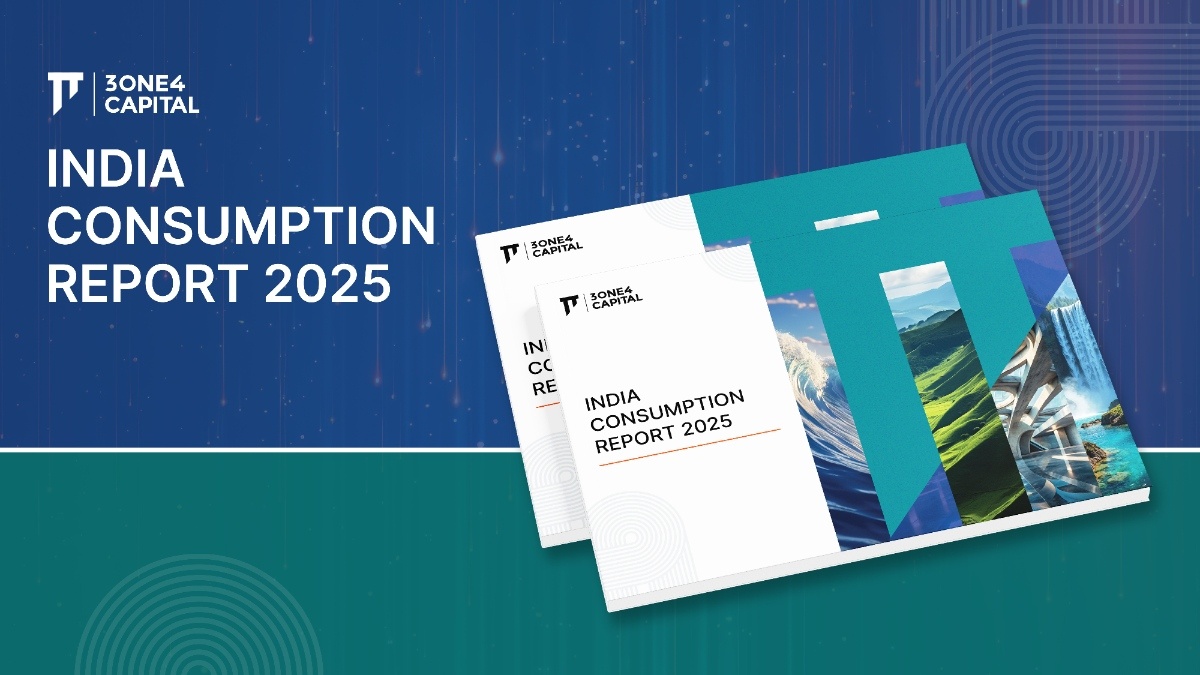
How Buyback Clauses can Result in Significant Net-worth Erosion
Fund Managers often chuckle that investing is a lot like the song “Hotel California”, which goes “You can check out any time you like, but you can never leave". Hence investment documents often contain detailed clauses on the exit mechanisms for investors, with the most popular options being:

While exit options are often backed by caveats such as “best efforts basis”, “subject to market conditions”, etc – these clauses can wreak havoc on balance sheets of companies during an audit. The root cause of this arises from the manner in which Indian Accounting Standards classify financial liabilities and equity.
Capital raises by startups are typically in the form of equity instruments such as Compulsory Convertible Preference Shares(CCPS), Compulsory Convertible Debentures (CCD), and equity shares. The common characteristic of all these instruments is that they bear equity risk, which means their returns are subject to the price the instruments can command in an open market. These instruments do not have a defined return multiple of rate of return attached to them. Hence such investments can return eye watering multiples of the amounts invested or can go to zero. This is the risk that equity investors take every time they make an investment.
The manner in which the buyback clause can wreak havoc on a balance sheet requires an understanding of three nuanced concepts:
· Accounting Standards in India and how they treat buybacks
· How buyback clauses are structured
· How auditors interpret exit clauses
Accounting Standards in India
Accounting Standards are a prescribed set of guidelines, rules and procedures that govern how companies and other entities must report their financial performance. India currently has two sets of accounting standards:

It is at the point of transition that from IGAAP to IND AS wherein the buyback clauses in Investment Agreements become an issue. It all arises from how IND AS classifies a financial liability.
What is a Financial Liability as per IND AS
A liability, simply put, denotes what a person owns another. IND AS 32 titled “Financial Instruments: Presentation”, defines a financial liability as:
“(a) A contractual obligation:
(i) to deliver cash or another financial asset to another entity; or
(ii)to exchange financial assets or financial liabilities with another entity under conditions that are potentially unfavourable to the entity;”
"(b) a contract that will or may be settled in the entity’s own equity instruments and is:
(i) a non-derivative for which the entity is or may be obliged to deliver a variable number of the entity’s own equity instruments; or
(ii) a derivative that will or may be settled other than by the exchange of a fixed amount of cash or another financial asset for a fixed number of the entity’s own equity instruments.”
Though the accounting standard goes onto pain staking detail into conditions for classifications and exceptions, the emboldened part is critical to understanding how a buyback clause can raise an audit qualification.
Typical Buyback Clause
A typical buyback clause in investment documents reads:
“If the Company fails to provide an exit to theInvestors as per the stated timelines above, then the Investors shall have the right (but not an obligation) to provide a written notice to the Company to buyback their securities at the prevailing fair market value, as determined by an independent valuer appointed by the Board. The buyback will be subject to the satisfaction of the conditions prescribed under Section 68 of the Companies Act, 2013.”
A buyback clause can be summarised as:
1. The Company fails to provide an exit to the Investors
2. Can be triggered by the Investors
3. The Company cannot defer or dishonour the buyback request
4. The buyback is subject to conditions stated as per law
How IND AS 32 Treats a Buyback Obligation
A buyback obligation meets the criteria of a Financial Liability as it is a
· a contractual obligation (arising from the Investment Agreements)
· to deliver cash (the buyback amount) or another financial asset
· to another entity (the Investors)
But the Company must honour the buyback request if and only if the Company can undertake a buyback as per Applicable Law.
If Investors trigger a buyback but the Company fails to meet the standards prescribed under law, then the Company need not carry out the buyback. Even if the Company meets the standards prescribed under law, the volume of shares to be bought back can be far lesser than the securities held by Investors.
This puts a buyback obligation into what is known as a contingent obligation, i.e., fulfillment is dependent(contingent) on the satisfaction of other factors. IND AS 32 comments on this contingent nature in Para 25 titled “Contingent Settlement Provisions”

The inability of the Company to defer the buyback, despite conditions outside of its control, render the buyback as a “financial liability”.
IND AS 32 also speaks about preference shares, which form the majority of the investment securities of institutional investors. The inability to meet the conditions of the buyback, even statutory, does not absolve the Company of its obligation; hence such shares have to be classified as “financial liabilities”

Thus, the existence of a buyback clause in Investment Documents can result in the securities held by Investors being classified as “Financial Liabilities”.
Consequence of Classification of Investor Securities as Financial Liabilities
The classification of Investor Securities as Financial Liabilities under IND AS 32 will result in a substantial reduction of the net worth of the Company. Startups who are transitioning to IND AS from IGAAP have normally raised large sums of capital from external investors. The erosion of the Company’s net worth affects fintech startups, who need to maintain a certain net worth as per applicable law. Covenants with debt providers too may contain a clause for positive net worth.
Certain investors may also face an issue with having their investments classified as “financial liabilities” instead of“equity instruments”, basis their internal constitutional documents.
Interplay with IGAAP
The underlying instrument being classified as a financial liability due to the buyback obligations exists under the IND AS framework only. Though linkages with IND AS 32 did exist earlier, IGAAP does not have a corresponding standard for such presentation. Thus a buyback obligation should not result in the investor securities being classified as a “financial liability”.
Audit Issues arising from Buyback Clauses
Auditors will seek to classify securities which have a buyback right as a “financial liability”. Companies are reluctant to do so due to the net worth erosion that it entails. Due to this, auditors have qualified the audit report of such companies. A qualified audit report occurs when an auditor is not convinced that the company’s financials give a “true and fair” view of its operations.
The audit report qualification will need to be disclosed as part of the prospectus of the Company if it occurred in the last 3years prior to the IPO.
Several Indian startups have faced this issue, with some even getting qualified audit reports due to the non-classification of investor securities as a financial liability. Despite Investors waiving the buyback rights, this was only prospective and the company had to account for the financial liability from the beginning of the financial year till the date of the waiver.
Managing Buybacks under IND AS
Buyback as an exit option exists for such companies regardless of the Investment Agreement. Buybacks are initiated by theBoard of directors, as per Section 68 of the Companies Act, 2013. So long as the Articles of Association of the company permit a buyback, the option can be exercised by the board, subject to shareholder approval.
Thus if conditions are conducive to a buyback, the investors can discuss the same with the board and seek an exit via these means.
Checklist for Companies on Buyback Clauses
Founders and startups should keep the following in mind while negotiating their investment documents:
1. Run the investment documents past one’s auditor to gauge if any of the clauses mentioned will have an impact on the financials of the Company
2. Discuss when IND AS will become applicable to the Company. Ensure that the buyback clauses are removed at least two years before IND AS’s applicability to ensure that the prior year’s financials are not recast with this financial liability
3. Speak to investors to remove the buyback clause as a binding obligation on the Company
4. Ensure that the Articles contain a provision to enable a buyback as per Section 68 of the Companies Act, 2013
Being a founder or CEO doesn’t entail being an expert in all matters related to running a business. But a good CEO should always have base awareness of material issues so that they may ask the right questions from their advisors and personnel.
DISCLAIMER
The views expressed herein are those of the author as of the publication date and are subject to change without notice. Neither the author nor any of the entities under the 3one4 Capital Group have any obligation to update the content. This publications are for informational and educational purposes only and should not be construed as providing any advisory service (including financial, regulatory, or legal). It does not constitute an offer to sell or a solicitation to buy any securities or related financial instruments in any jurisdiction. Readers should perform their own due diligence and consult with relevant advisors before taking any decisions. Any reliance on the information herein is at the reader's own risk, and 3one4 Capital Group assumes no liability for any such reliance.Certain information is based on third-party sources believed to be reliable, but neither the author nor 3one4 Capital Group guarantees its accuracy, recency or completeness. There has been no independent verification of such information or the assumptions on which such information is based, unless expressly mentioned otherwise. References to specific companies, securities, or investment strategies are not endorsements. Unauthorized reproduction, distribution, or use of this document, in whole or in part, is prohibited without prior written consent from the author and/or the 3one4 Capital Group.


.webp)












